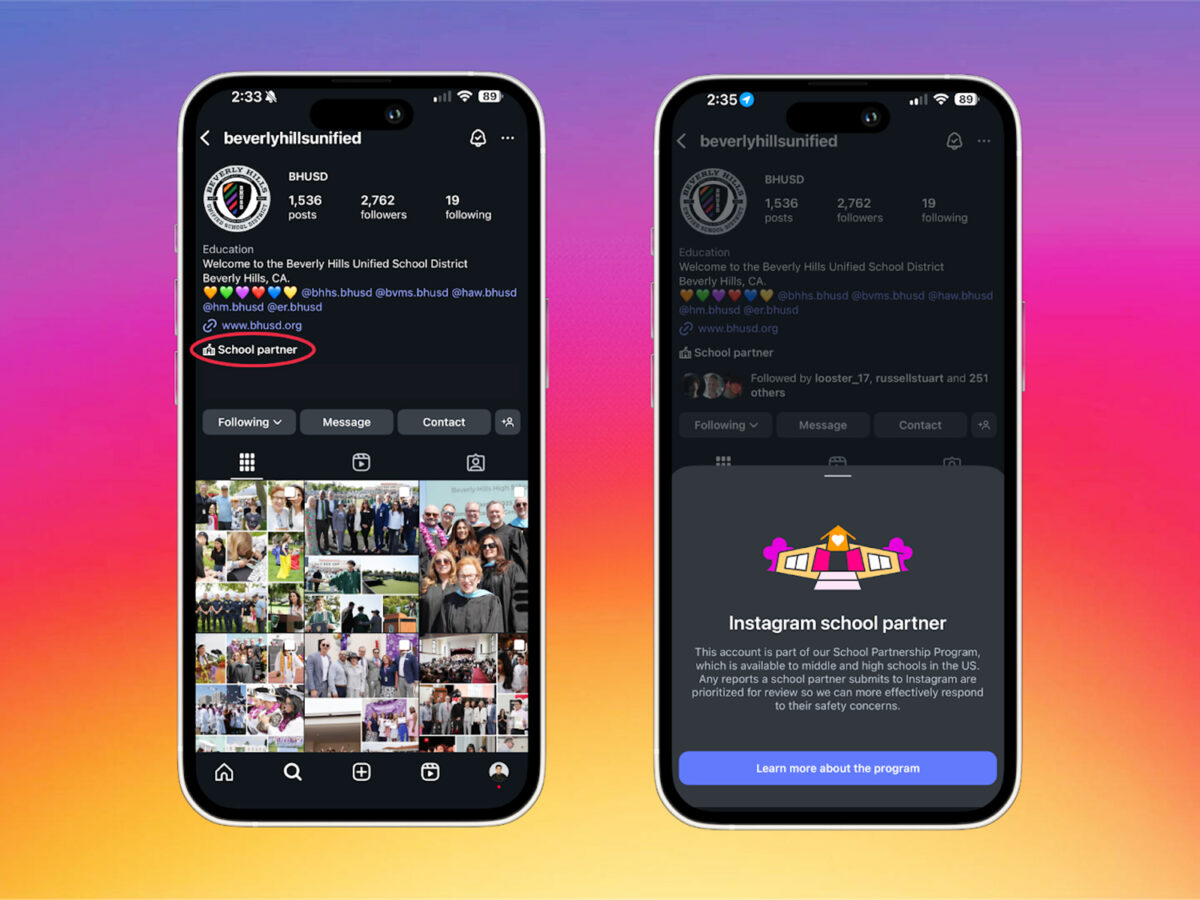Beverly Hills Courier columnist Jennifer Winward, Ph.D., is a nationally recognized teaching expert, a renowned professor at the University of California, San Diego, and the founder and CEO of Winward Academy (www.winwardacademy.com) an award-winning educational platform supporting middle and high school students with math courses, ACT/SAT prep, and college applications. Dr. Winward has received numerous honors during her 20 years in the field. She earned her Ph.D. with a dual emphasis in Neuroscience and Developmental Neuropsychology from the University of California, San Diego.
When preparing for college admissions, many students and parents keep their ears to the ground, hungry for any tip or strategy to help attract admissions officers. During this unprecedented time, however, many are struggling to distinguish fact from fiction with information swirling about what they should or should not do to set themselves up for maximum success in the college application process.
My goal here is to identify the myths and the truths as you navigate the perceptions and realities of college admissions during COVID-19.
Grades
First and foremost, grades matter, especially for the most selective colleges. If your high school offers opportunities for Honors, Advanced Placement, or International Baccalaureate courses, then doing well in those classes communicates that you’re ready for the rigor of college. Remember that college admissions officers can check detailed information about what’s offered at each high school and what is the performance breakdown of the student body.
Historically, junior year grades and first semester senior year grades have been a crucial metric for college admissions. This year will be different, given the varied experiences students have encountered during the pandemic. Some high schools switched to pass/no pass; others gave A’s just for showing up; others stopped giving exams. Simply put, it’s been a mess. Please note that colleges are aware of this unpredictability, and they will be more understanding of the uncertain nature of what students have encountered.
My best advice (COVID or no COVID) for applying to colleges: you’ll want to show that you excel in difficult courses. Pick advanced classes in areas that are of interest to you, so you have a higher likelihood of excelling. Your top goal is to demonstrate that you have the academic grit and discipline to succeed at the college level. You need to challenge yourself in areas in which you’re strong, and then work hard to get high grades in all your classes. The harsh reality is that a C in an AP class, even during COVID-19, isn’t going to impress admissions officers at top colleges.
ACT and SAT Scores
Many colleges have loosened their requirements for ACT and SAT scores for this admissions cycle. Given the test center cancellations since the Spring, they had to make this change so students weren’t unfairly punished if they couldn’t take the tests. That being said, students who do have scores particularly strong ones are still encouraged to submit them as part of the holistic review process. To put this into context, Dartmouth College Admissions states the following:
“In normal circumstances, standardized testing offers useful statistical context for the holistic evaluation of a student’s academic record as well as our essential assessment of preparation for the curriculum we offer. But this moment is not normal and a policy pause is warranted. However, our commitment to academic excellence and intellectual curiosity has not changed At Dartmouth, we will welcome any testing element a student chooses to share–the SAT, the ACT, a subject test, an AP score–or none at all. Our admission committee will review each candidacy without second-guessing the omission or presence of a testing element.”
What does this mean for current juniors, sophomores, and freshmen? As it stands now, the most competitive schools plan to require the ACT and SAT for next year’s application cycle. However, that’s subject to change if we see another spring of cancelled exams due to the pandemic. This discussion is further confused by the recent decision of the UC schools to no longer require the ACT and SAT as they plan to launch their own test for admission in the next several years. To make matters even more complicated, many scholarships and athletic programs still require test scores even if the colleges are test optional.
So, should you skip these tests? Simply put, if you’re a current junior planning to apply to schools beyond the UC system, to apply for scholarships, or to play sports in college, then you should keep up with your grammar rules, math equations, and reading skills so you’re set up for success taking the ACT and/or SAT this Spring. Also note that those skills are essential for life, not just for an ACT or SAT; solidifying those abilities has long-term benefits beyond those exams.
Demonstrated Fit
One thing that has not changed during COVID-19 is the importance that colleges place on students showing genuine interest in the university. Prior to COVID-19, many families felt pressured to visit a campus believing that colleges would assume you’re not serious about attending if you’ve never been there. Given all the recent shifts, colleges are providing many more opportunities for virtual tours and virtual events to learn more about their campuses, faculty, and programs. That means that you can find many other ways to display genuine interest in a college that don’t require physically visiting: call or email the admissions representative with informed questions, request a virtual interview, contact an alumni, or attend a virtual college fair. In each of those experiences, take copious notes about what you learn, what you like, and how you connect with the mission, vision, and student body. At the end of the day, colleges want to admit people who will want to attend if accepted.
Activities
Traditionally, the advice has been the same for decades – quality of involvement is more important than quantity. To admissions officers, it’s not just about showing up; it’s about making a difference.
In that vein, the activity section is for highlighting what you did with your time outside of class. How did those experiences inform the type of person you’ll be on a college campus? Due to COVID-19’s upending of our lives, teens are struggling to show that same depth of involvement. Remember college admissions officers are sensitive to this fact. They know students have had to stop their extracurriculars and understand your priorities may have shifted. Be honest about your situation and focus on the personal qualities demonstrated by how you’ve adapted during this time.
Letters of Recommendation
Many students have always assumed, even pre-COVID-19, that only a teacher who’s given them an A should write a letter of recommendation. That was false before, and it continues to be false in a post-COVID world. The goal of a letter of recommendation is for the teacher to help the admissions officers understand who you are. If you absolutely crush a class, get the highest grade, and participate actively, then of course that teacher will write you an exceptional recommendation. But also consider asking a teacher who can show another side of you. Maybe it’s the teacher who taught your most difficult class, one in which you developed self-advocacy skills and sought additional help every day at lunch. Perhaps you got a B in the class, but it’s the grade you’re most proud of. If that teacher can comment on your work ethic, character, growth, and persistence, then that letter would be great.
Significant Impact from COVID-19 or Other Life Circumstances
College applications have added an additional, optional essay for students to describe how the pandemic affected them or their families. That’s because admissions officers do not want your entire application to be focused on COVID-19 and its impact on you. Your application, including your main personal statement, should have the same impact as if you’d applied last year highlight yourself, your values, and your intellectual curiosity. There is a new section to describe any impact of COVID-19, so don’t let the topic bleed its way into your whole application. Admissions officers still want to learn about you, and you are not defined by COVID-19. If you have something to share about COVID-19’s impact, then definitely take advantage of the extra essay. If you don’t, then leave that section blank.
Finally, be sure to do a final check of your application to ensure you haven’t left any circumstances unexplained. Did your grades drop in a semester? Did you stop activities due to a parental job loss or a death in the family? Explain how you were impacted so that no one assumes you stopped caring. Whatever you do, do not count on them to give you the benefit of the doubt. They’re looking for easy reasons to say no; do not give them that chance.
Yes, applying to college has always been an anxious experience for teens and their parents. Now throw in the uncertainty of a global pandemic, and the entire process feels completely upended. Please find solace knowing everyone is in the same boat, and college admissions officers are more understanding now than ever before. Trust yourself so when you click submit, you feel proud of the person you are and how you’ve presented yourself, your values, and your goals.







